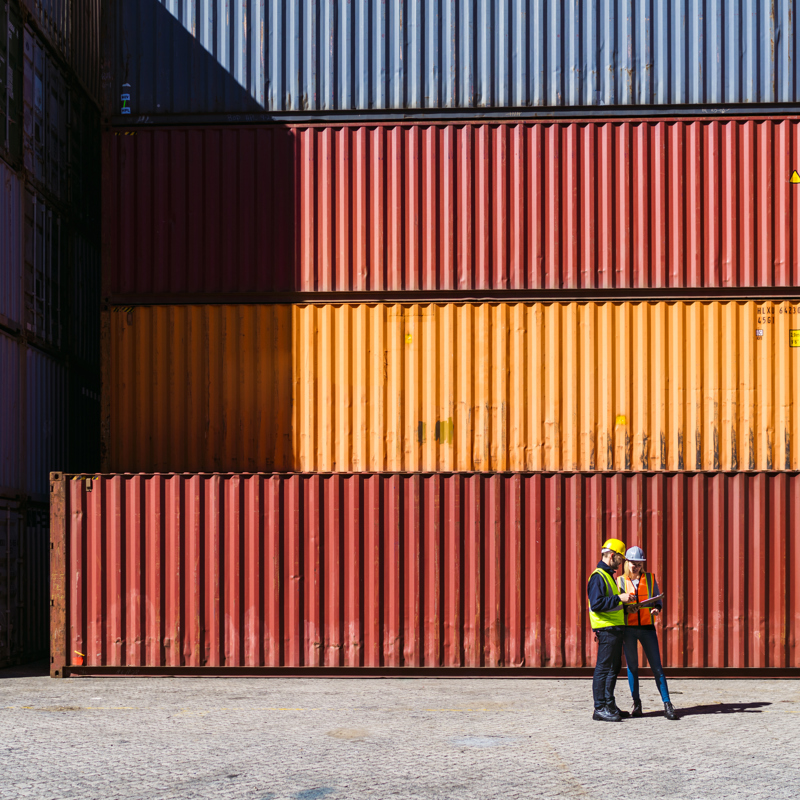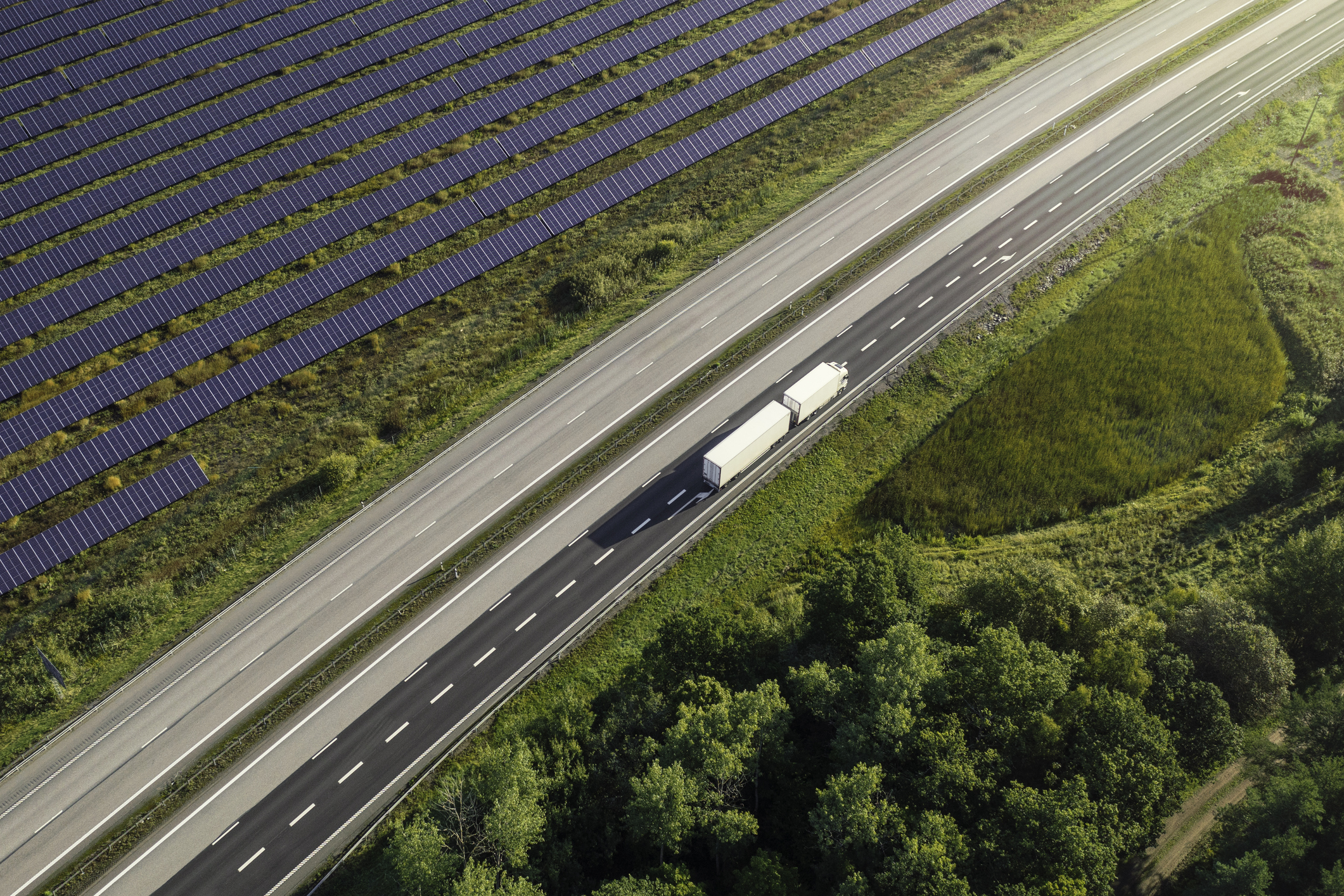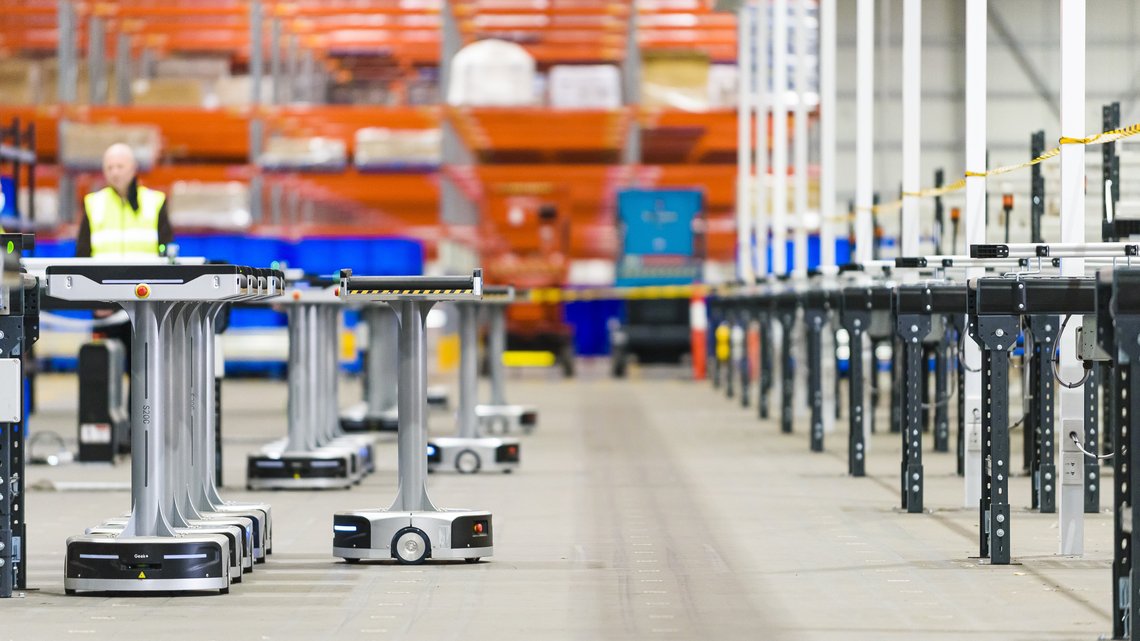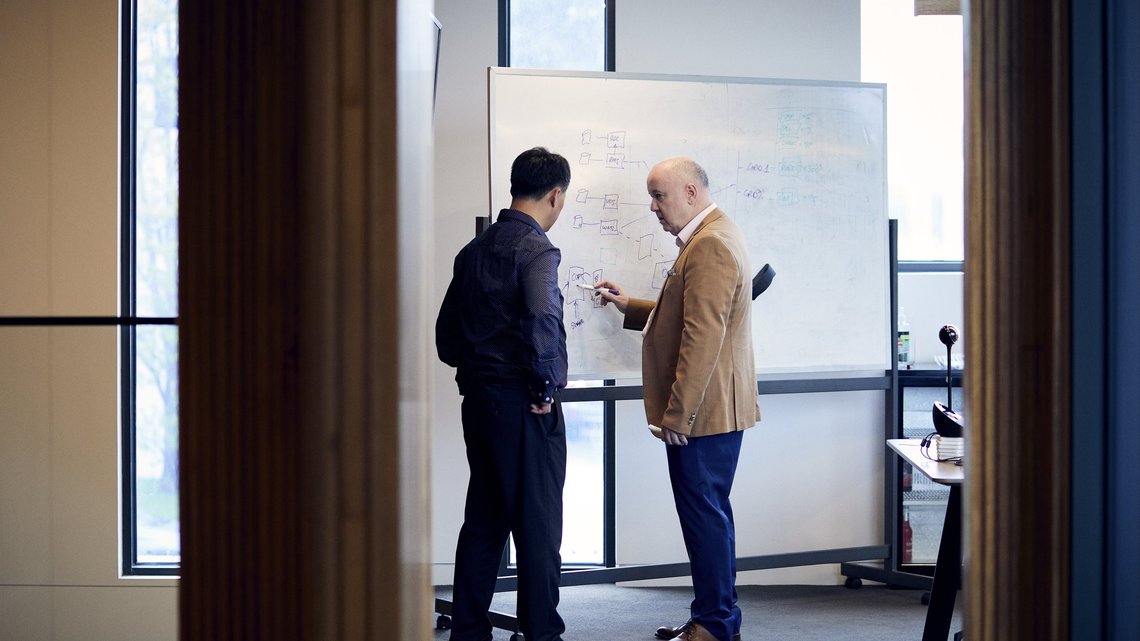
- Blog
How supply chains are re-defining resilience through smarter network design
A recap of the Roland Berger × Infios webinar on building...
No longer something we can ignore; sustainability has become the key driver for business success and is essential to the positive public image of any organisation. Our supply chains must start to put sustainability at the heart of their operations today, and to facilitate this, there are several practical solutions to make your supply chain more sustainable, reducing both your waste and carbon footprint, and managing costs – all while increasing profitability.

As the demand for eco-friendly products and services grows, so too does the risk of companies overstating their sustainability credentials in order to attract and retain customers and investors. This is known as greenwashing - the practice of misrepresenting the extent to which a product or strategy is environmentally friendly, sustainable or ethical.
With so much pressure on businesses to be greener, many organisations are trying to use their credentials on sustainability to gain a competitive edge. Recently, however, Australian companies have been put on notice about greenwashing after the Australian Competition and Consumer Commission issued its first ever fine for greenwashing.
While there has been an increase in investor demand for, and the availability of, sustainability-related products in the Australian market, there has been a growing risk of greenwashing. Greenwashing can take many different forms, ranging from exaggerated or imprecise claims to those intentionally crafted to deceive or mislead. Although initially used in the context of environmental statements, it now extends to broader sustainability concepts. It is therefore important that we, in the supply chain, comply with existing requirements when promoting or offering sustainability-related products.
The growing pressure on companies to act on sustainability, means that their supply chains are expected to be greener too. Research has shown that for most companies the supply chain is responsible for the bulk of their environmental impact. By their very nature, supply chains often involve energy-intensive production and transportation, as goods are made and moved around the globe. Therefore, organisations can often make the biggest difference by making changes to their supply chain.
As the push for sustainable development gains momentum; driven by key stakeholders such as investors, financiers, regulators and customers – the scope broadens from mitigating climate risk to broader social considerations in line with global targets. As awareness grows about the need for sustainable development practices there is now a mounting focus on a broader spectrum of issues, which includes social and corporate governance concerns.
Developing and operating a sustainable supply chain strategy will help improve investor and consumer perceptions, manage costs and drive innovation, as well as build a resilient supply chain that leads to long-term financial viability.
It cannot be overstated how important making a change today will impact the future of our supply chains. Under pressure from consumers, competitors and national and international regulations to meet better sustainability standards, supply chains should waste no time in ramping up their efforts to be both more sustainable and more ethical.

At Infios we are committed to making the world a greener place by building a more sustainable global supply chain network. For many years we have placed sustainability at the front of our minds and this trend will increase in the future, together with a focus on climate change risks.
As larger companies make public promises to become more eco-friendly, they are also holding their suppliers to the same standards. It is therefore more important than ever before that we all have a sound understanding of our processes and how our suppliers procure their goods.
To facilitate this, there are several practical solutions to make your supply chain more sustainable, reducing both your waste and your carbon footprint, and managing costs – all while increasing profitability. From pushing companies to rethink the use of plastic in packaging and increasing efforts to use recyclable materials, to overhauling vehicle fleets and making the move to electric vehicles, as well as introducing more automation to our warehouses.
Companies of all sizes and industries can introduce a variety of supply chain software and automation options to reach their sustainability goals. Technologies such as autonomous robots, warehouse management systems and artificial intelligence, will all play a critical role in allowing the continued functioning of a greener and cleaner supply chain.
Advanced software and automation technologies will reduce energy waste in warehouses, shrink carbon footprint and decrease costs for both energy and materials. With the help of robotics – such as drones, Autonomous Mobile Robots (AMRs) and artificial data intelligence – businesses can increase productivity, efficiency and product quality, as well as become more sustainable largely due to the increased accuracy and reduction in energy consumption.
By keeping up with the pace of change and embracing the innovation in our industry, we must leverage the technologies available to us today, in order to achieve increased visibility, energy efficiency and waste minimisation across the entire supply chain operation.

Over the past few years, Australian companies and their supply chains have been inundated with a growing number of disruptions, fuelled by mega trends such as globalisation, technological advancements and, most concerningly, climate change.
No longer something we can ignore; sustainability has become the key driver for business success and is essential to the positive public image of any organisation.
With an increasingly environmentally conscious consumer now playing a central role in forcing companies to embrace sustainable business practices – including managing the environmental and social impacts of their supply chains – the time for our sector to act is now.
According to research by global market research company NielsenIQ, 73% of consumers say they would either ‘definitely’ or ‘probably’ change consumption habits to reduce their impact on the environment. As Australian consumers demand products that are sustainably sourced through a supply chain that has a minimal impact on the natural environment, today’s operations are having to move quickly to ensure their business is more sustainable, and ethical.
At Infios, we have seen first-hand how climate change has directly impacted our economy, livelihoods, and health.
Disruptions caused by extreme weather events have had an impact on all regions and all sectors. Perhaps in no other sector has the impact of climate change been felt more significantly, than within the global supply chain.
Here in Australia, the climate risks of greatest concern are rising sea levels, extreme rainfall and wind, increasing intensity of cyclones and tropical storms, and higher temperatures.
These risks have already resulted in coastal recession, flooding of essential public infrastructure, loss of transport access, heatwaves, and an increasing frequency of bushfires.
We all witnessed first-hand the unprecedented nature of the bushfire seasons of 2019 and into 2020. Key infrastructure was closed, including some highways and ports. Production lines were damaged, and consumer spending tumbled. Several key freight routes were closed, heavily impacting the supply of goods – forcing companies to find alternative routes. Further, data from AccuWeather estimates the total damage and economic loss caused by the wildfires to exceed $110 billion
To avoid similar devastation in the future, our supply chains must start to put sustainability at the heart of their operations today.
